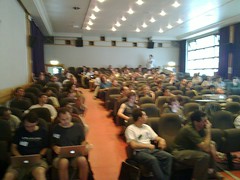Sprint Scikit learn in Paris
We are organizing a coding sprint in Paris on scikit learn, machine learning in Python. The goal of this sprint is to set the API and the general coding guidelines of the scikit to be able to tackle many different statistical learning problems in a consistent framework.
This is why …




